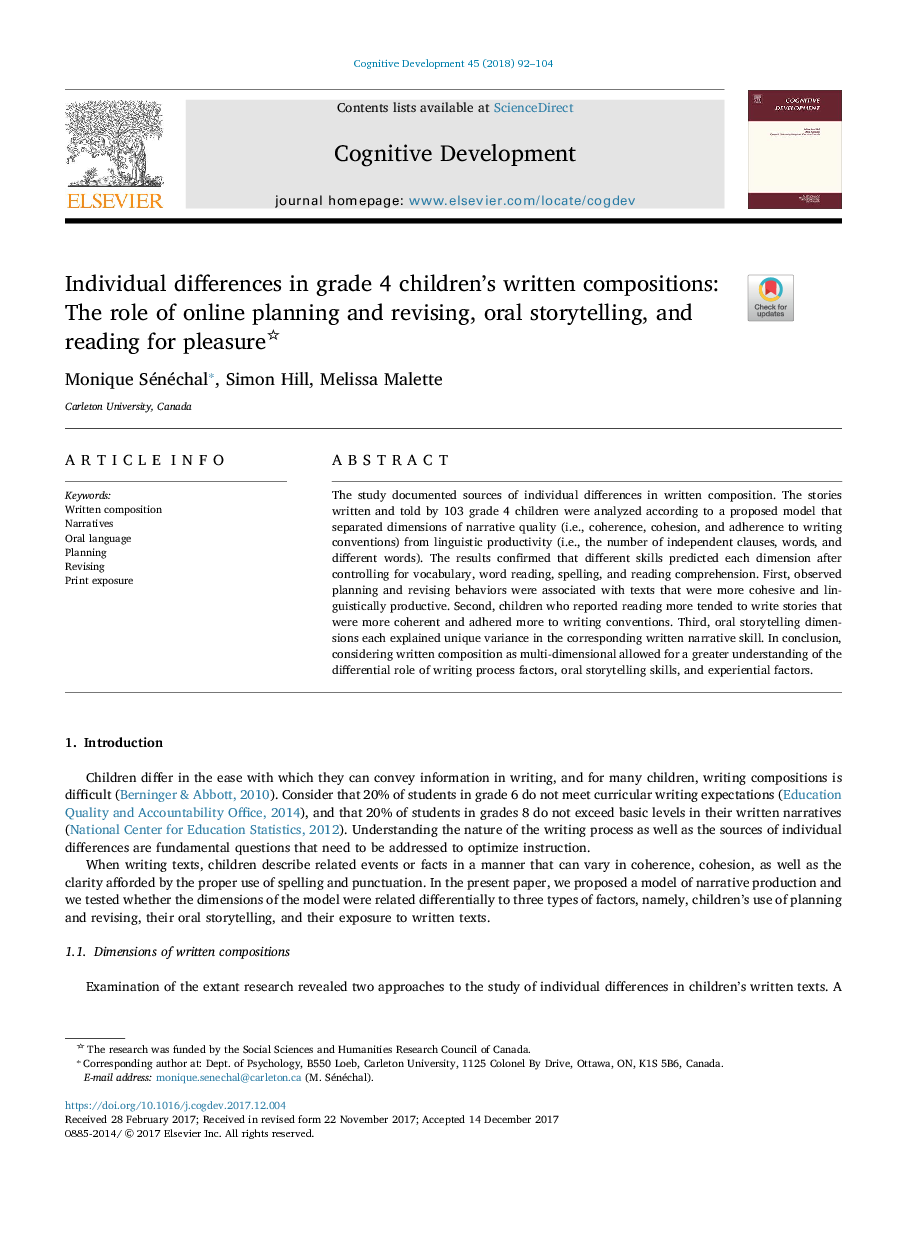ترجمه فارسی عنوان مقاله
اختلافات فردی در چهارچوب کودکان 4 تا 4 ساله: نقش برنامه ریزی و بازنگری آنلاین، قصه گویی دهان و خواندن برای لذت
عنوان انگلیسی
Individual differences in grade 4 childrenâs written compositions: The role of online planning and revising, oral storytelling, and reading for pleasure
| کد مقاله | سال انتشار | تعداد صفحات مقاله انگلیسی |
|---|---|---|
| 119982 | 2018 | 13 صفحه PDF |
منبع

Publisher : Elsevier - Science Direct (الزویر - ساینس دایرکت)
Journal : Cognitive Development, Volume 45, JanuaryâMarch 2018, Pages 92-104
ترجمه کلمات کلیدی
ترکیب نوشته شده، روایت ها، زبان روحی، برنامه ریزی، بازنگری قرار گرفتن در معرض چاپ
کلمات کلیدی انگلیسی
Written composition; Narratives; Oral language; Planning; Revising; Print exposure;
ترجمه چکیده
این مطالعه منابع منافع فردی را در ترکیب نوشته شده ثبت کرده است. داستان های نوشته شده توسط 103 کودک 4 گانه به روش مدل پیشنهادی که ابعاد کیفیت روایت (یعنی انسجام، انسجام و پیوستن به قراردادهای نوشتاری) را از بهره وری زبان شناختی (یعنی تعداد واژگان مستقل، کلمات، و کلمات مختلف) نتایج تایید شده است که مهارت های مختلف پیش بینی هر بعد بعد از کنترل برای واژگان، خواندن کلمه، املا و درک مطلب. اولا، برنامه ریزی و تجدید نظر در برنامه های مشاهده شده با متون مرتبط بود که انعطاف پذیر تر و زبان شناختی تر بودند. دوم، کودکانی که بیشتر خواندن را گزارش کردند، تمایل به نوشتن داستانهایی داشتند که هماهنگتر بودند و بیشتر به کنوانسیون نوشتن پیوند داشتند. سوم، ابعاد داستان سرایی دهان هر یک واریانس منحصر به فرد در مهارت روایت نوشته شده مربوط به آن را توضیح داد. در نتیجه، با در نظر گرفتن ترکیب نوشته شده به عنوان چند بعدی، درک بیشتر از نقش دیفرانسیل عوامل نوشتن فرآیند، مهارت های داستان دهی دهان و عوامل تجربی امکان پذیر است.

